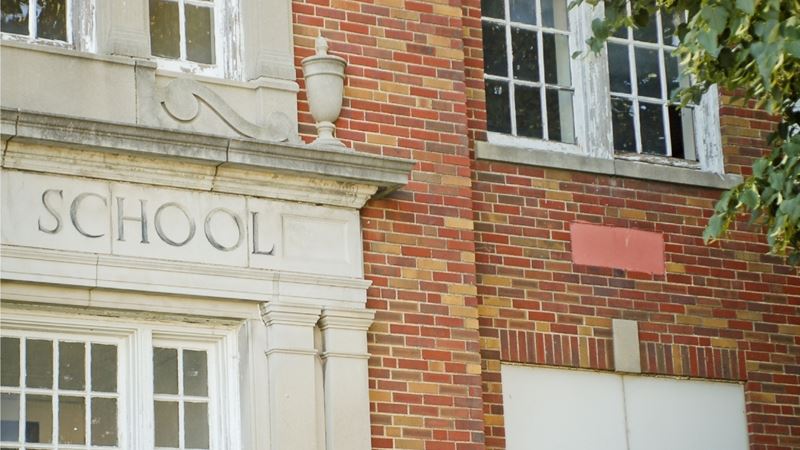
This article is for general guidance only and is not financial or professional advice. Any links are for your own information, and do not constitute any form of recommendation by Saga. You should not solely rely on this information to make any decisions, and consider seeking independent professional advice. All figures and information in this article are correct at the time of publishing, but laws, entitlements, tax treatments and allowances may change in the future.
Research has found that 24% of parents are struggling to pay school fees, and doting grandparents are stepping into the breach.
According to the study, from wealth planner Killik & Co, 18% of people with children at private school are getting help from their own parents.
Melanie Sanderson, Managing Editor at The Good Schools Guide, says: “With many parents of young children facing ever-increasing expenditure as the current cost of living rises, it’s common for grandparents – especially those who have downsized and are mortgage-free with good pensions – to contribute to the cost of an independent education.”
It now costs families an average of £18,064 a year to send one child to private school, according to the Independent Schools Council, and that cost could increase in the future if and when VAT becomes payable for fee-charging schools, as was pledged in Labour’s manifesto.
“A contribution towards school fees may enable children who are not thriving in the state-maintained sector to flourish. Pupils with special educational needs, for example, are often better suited to smaller class sizes and more accessible intervention,” Sanderson adds.
“Equally, young people with special talents in, for example, the arts, sport or academia, may benefit from the provision on offer in the independent sector.”
But another, less obvious, reason is that helping with school fees can also cut a potential Inheritance Tax bill.
Before agreeing to help with school fees in any way, grandparents need to consider how affordable the process could actually be and agree with adult children how much will be paid – and for how long.
It should also be considered what happens if more grandchildren come along.
Having these open and honest discussions now makes it easier to avoid a stressful conflict further down the line if it becomes necessary to withdraw support.
Sanderson says nobody should feel pressured or obliged to pay for their grandchildren’s education.
“SKI holidays (Spending the Kids’ Inheritance) and other indulgences afforded by years of hard work and a healthy pension pot shouldn’t be unwillingly compromised.
“Although adult children may want their offspring to have the same independent schooling they enjoyed, they should be reminded that there is (usually) nothing wrong with the state-maintained sector, particularly with school fee inflation as it is, and today’s grandparents often have long and healthy retirements to fund.”
She adds: “If, however, grandparents do want to make a contribution – or indeed pay the full fees – the same rules apply to them as to everyone else.
“Remember that the school journey is 14 years long and that fees rise, typically by anything from 3 to 8 per cent, every year. Be sure that you can afford to finish what you start.”

William Stevens, Partner and Head of Financial Planning at Killik & Co, says: “Helping with school fees can be a key way for grandparents to reduce inheritance tax (IHT).
“By giving gifts earlier, they lower the value of their estate, and paying for schooling gives them a reason to make these gifts.”
Stevens says there are two key ways grandparents can pay or contribute towards school fees: with a lump sum, or by making regular gifts from income.
Lump sum gifting can be tax-effective but will depend on how long the donor lives after making the gift.
“If they live for seven years after making this gift, it won't be counted as part of their estate for IHT. If they pass away within seven years, the gift might still be taxed, but there can be some tax relief.”
Taper relief, the sliding scale on which gifts are taxed for IHT purposes, kicks in after three years, when the rate drops to 32%, gradually decreasing until year seven when it drops to 0%.
This is why you might see this type of lump sum gift referred to as a potentially exempt transfer, or PET.
However, if a grandparent is able to make school payments out of their regular income, they may automatically be outside their estate and free from tax. But Stevens warns the rules on gifts from regular income are strict.
“To qualify, the gifts must be part of their normal spending, come from their income, and not affect their ability to maintain their usual standard of living.”
This means anyone making this choice will need to keep scrupulous records of income and expenditure so that their executor is able to prove they could afford the gifts when the time eventually comes.
Another option, if you are gifting a lump sum to pay for school fees, is to pay the money into a trust.
This can have a number of advantages, depending on the type of trust used; however, it's a complicated area of financial planning, so it's important you get independent advice from an expert in estate planning and trust law.

There’s billions sitting unclaimed in shares and dividends – find out if any belongs to you.

From their first savings account to their first home, find out how your gifts can make the biggest impact for your grandchildren
.jpg?la=en&h=354&w=616&hash=653168623B92F3457D40ACA115D37B3E)

.jpg?la=en&h=354&w=616&hash=458B0288E9852F4B63A433E2FDD375E7)



We partner with Co-op Legal Services to offer advice and services for you and your family.